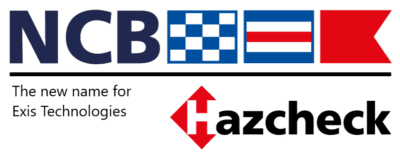A new solution for undeclared and mis-declared DG in containerised shipments – Forwarder Magazine Issue 47
Exis Technologies has been a global leader in solutions for the management of dangerous goods in sea transport for over 30 years. In April 2018 Exis Technologies became the software division of the National Cargo Bureau (NCB), a New York-based not-for-profit organization entrusted with ensuring safety of life and cargo at sea. For over a decade NCB and Exis have been working together in containerised dangerous goods cargo management initiatives to help improve safety in the supply chain. They are now developing a new solution that will help to prevent the issue of mis-declared and undeclared goods being loaded into containerised shipments.
Dangerous goods (DG) in containerised shipments – the current landscape
Around 10% of containerised shipments include declared dangerous goods,. Shipping lines are therefore keen to ensure that DGs are properly classified, packaged, packed and declared throughout the supply chain. However, mistakes can be made due to lack of competence or, unfortunately in some cases, by deliberately incorrectly declaring cargo to save cost or time. In other cases, the cargo may have been properly declared, but mistakes are made with packing and stowing the cargo in the container. All of these issues can lead to ship fires. Unless the container is physically opened and inspected, there is no way of knowing whether the cargo is safe for transport.
If the cargo is properly declared as dangerous goods, shipping lines can use tools such as Exis Technologies’ Hazcheck to verify that the declared cargo complies with the IMDG Code and other local rules and restrictions. More than 400,000 validations are made with Hazcheck per month for the top 10 lines representing 80% of the world’s DG container traffic. Around 4,000 rejections are picked up each month with the software for declared dangerous goods. 9 of the top 10 global container lines use Hazcheck and around 90% of the UK ferry lines as well as shippers, freight forwarders, logistics companies and ports.
Examples of common mis-declared dangerous goods
According to the U.S. Department of Transportation, commonly shipped undeclared hazardous materials include, but are not limited to:
- Agricultural: ammonium nitrate fertilizers, pesticides
- Air conditioning: Refrigerant gases
- Automotive: Lead-acid batteries, air bag inflators, seatbelt pretensioners, fuel injector cleaners, gasoline, diesel fuel
- Camping and outdoors equipment: fuel gels, propane “tanks”, matches, flares, scuba “tanks”
- Construction: adhesives, sealants, tars
- Fire-fighting equipment: fire extinguishers
- Household goods: aerosol spray cans, perfumes, fireworks, oil-based paint related materials, adhesives, lighters, drain cleaners, pepper sprays
- Medical: Oxygen “tanks” Motorized vehicles, tools, and equipment: cars, boats, generators, engines, lawnmowers
- Pool maintenance: chlorinating tablets or granules
Hazcheck Detect: a new solution
National Cargo Bureau and Exis have created a cargo screening service to address the problem of mis-declared and undeclared dangerous goods screening shipment data. The new industry solution, Hazcheck Detect, which will be officially launched in early 2020, compliments NCB’s cargo inspection operation. NCB President Ian Lennard said, “We are delighted to be working with Exis on this ground-breaking project. Ship fires are an ongoing problem and we hope this new service will help to stop mis-declared and undeclared goods making it onto the ships in the first place”.
Hazcheck Detect is a cargo screening solution which can scan all booking or shipping instruction details for keywords, validate against rules and highlight suspicious shipments to identify mis-declared and non-declared dangerous goods (DG) and compliance cargo. It will be possible to share information with partner lines to avoid undeclared booking from partners.
Undeclared DG – These checks would focus on cargo that is not declared as DG, looking for suspicious items that perhaps should be declared as DG.
Mis-declared DG – These checks would focus on cargo which is declared as DG, but perhaps may not have been declared as the correct DG.
Hazcheck Detect will be delivered as a software-as-a-service solution, hosted and maintained by Exis Technologies. It will include a web user interface so that users can enter and maintain data search terms/keyword/rules.
The diagram below shows the current landscape regarding the shipment of DG by sea and the new Hazcheck Detect solution: More details about the new service will be available in early 2020. For more information and a functional overview document go to: https://hazcheck.com/product/hazcheck-detect/







